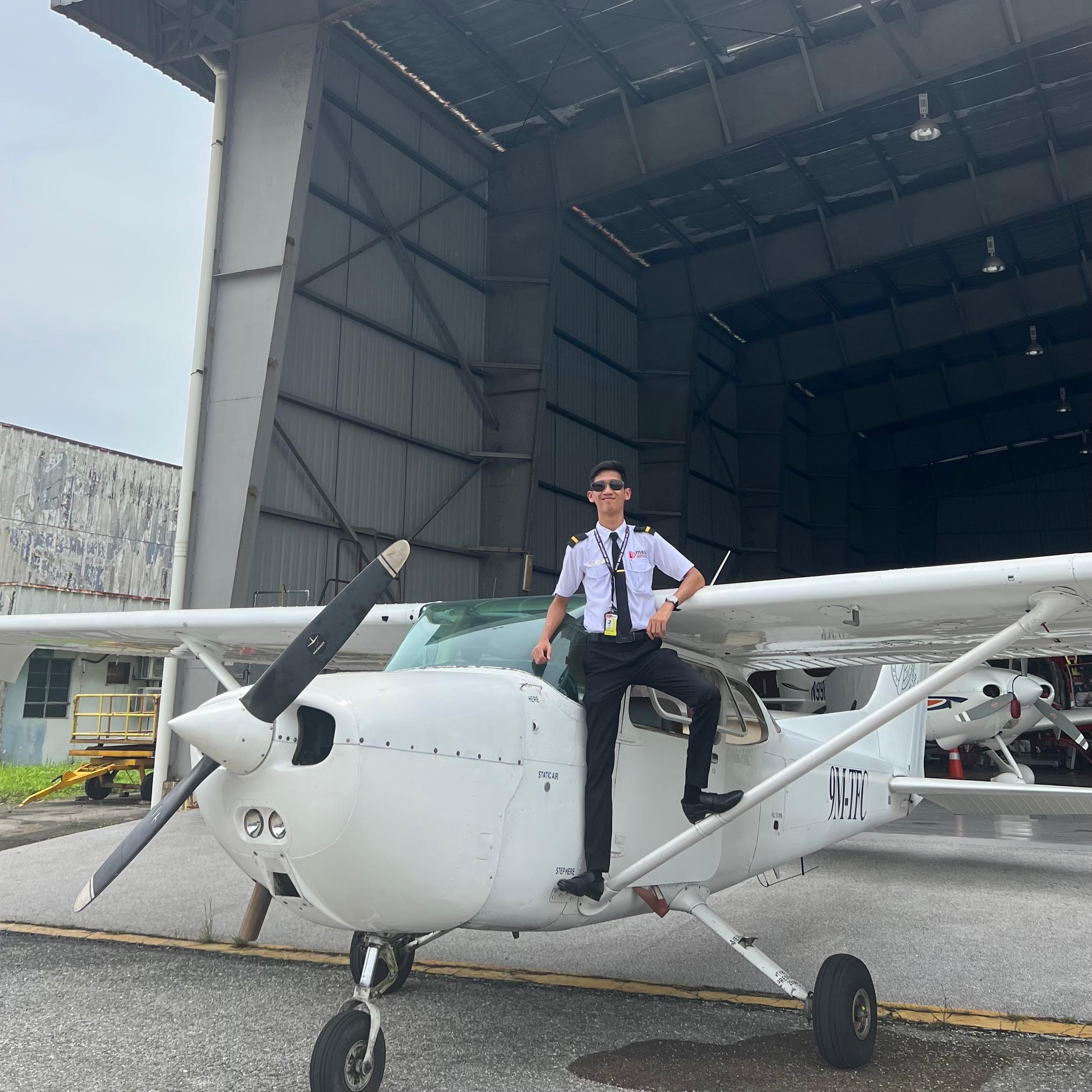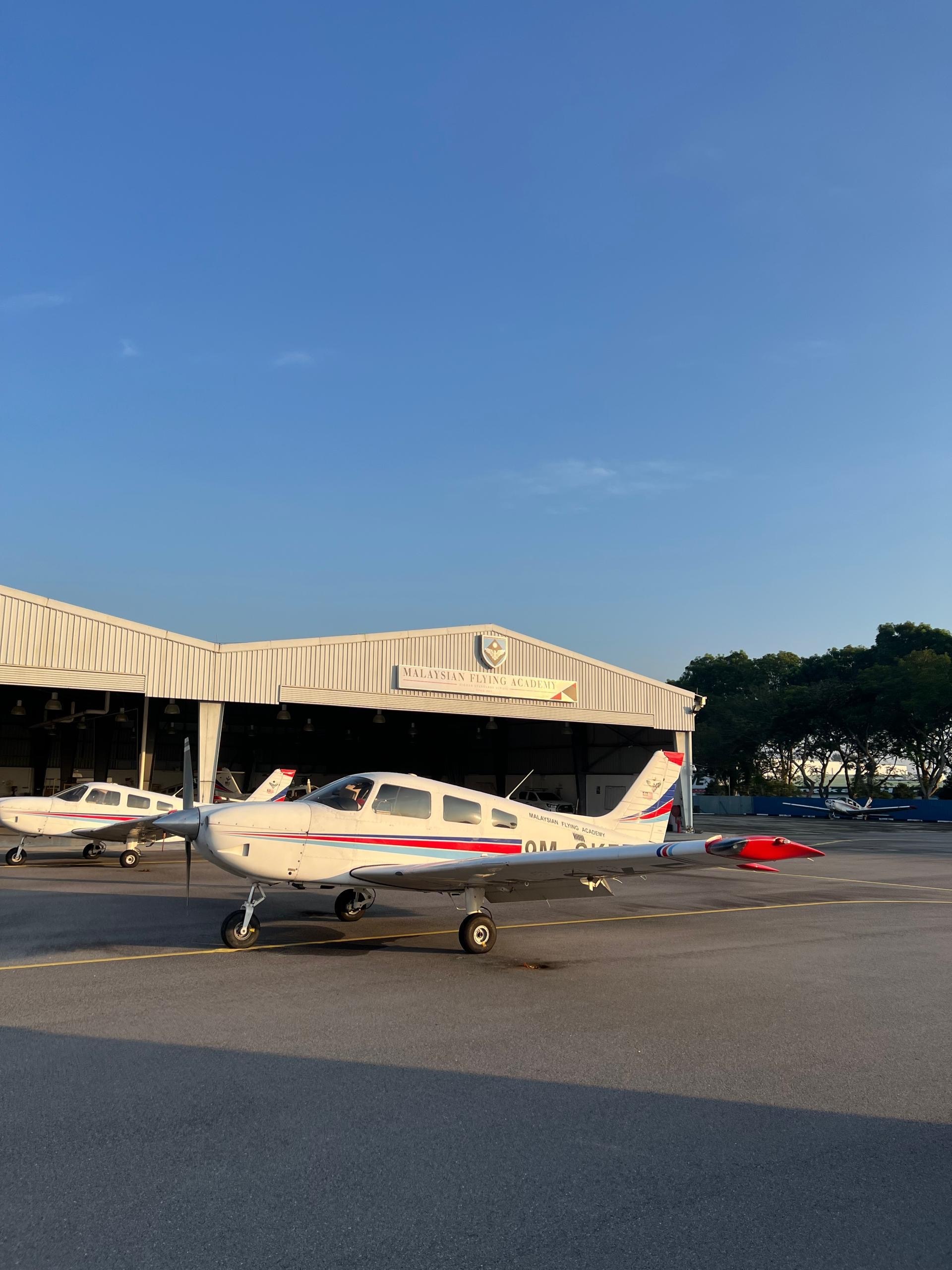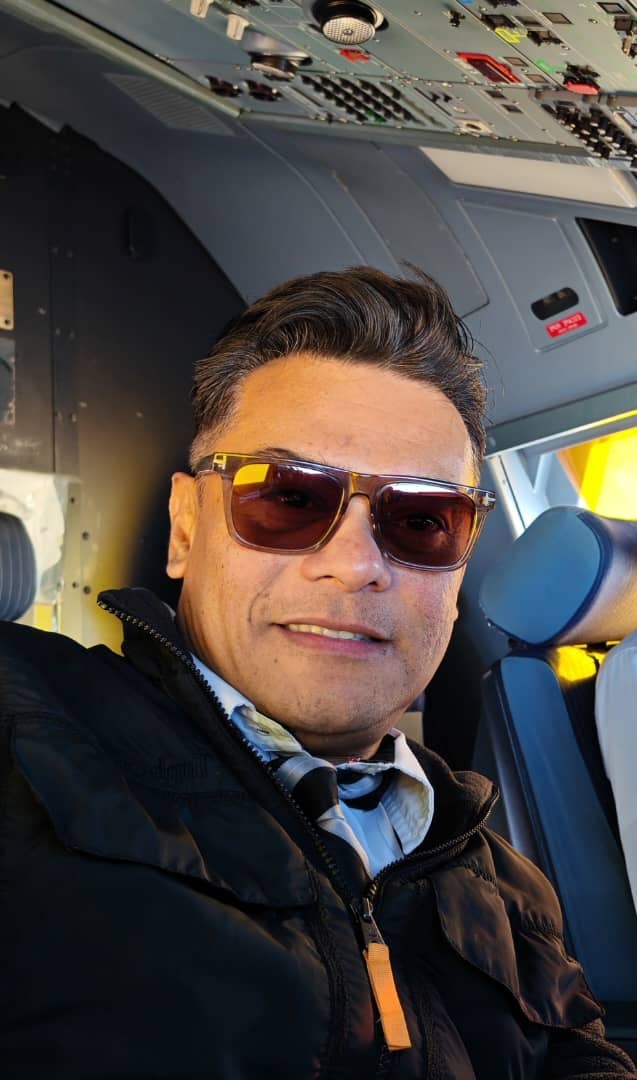What It Really Takes to Become a Pilot: Two Generations Tell All

Dini Qistina Rashid
October 30, 2025
Passion Sparks the Journey: Adrian's dream began with a childhood encounter, while Irfan developed his passion over time, driven by the desire to connect people globally through aviation.
Challenging Training: Both pilots highlight the mental and technical challenges of pilot training, emphasising the importance of discipline, leadership, and teamwork.
Financial and Career Commitment: Becoming a pilot requires careful planning, financial dedication, and the willingness to meet strict certification requirements throughout one’s career.
Purpose and Passion in Flying: Both Adrian and Irfan find joy in the profession—Adrian loves the thrill of flying, while Irfan values the responsibility of connecting people and making a difference.
Adrian Ng, a pilot for Air Asia X, felt the spark from a very young age. He was eight at the time, standing in the old Subang Airport, eye level with a 747 cockpit. A captain passed by, perhaps entranced by this little child’s amusement, and reached into his pocket. He fished out a pair of plastic airline wings and pinned them on Adrian, utterly unaware that this gesture would change the trajectory of Adrian’s life.
The pilot walked away. But Adrian’s dream began to bloom. Three decades later, and he still sounds like that eight-year-old when he talks about views from the flight deck.
Similarly, Irfan Nuaim, a Bachelor of Science in Aviation Management and Piloting (Honours) alumnus from Management Science University (MSU), felt it first as a slow burn, not a lightning bolt.
He watched big jets as a kid, the kind that made his chest hum before his brain caught up. He remembered the A380 and the shivers it gave him, and how he saw something more than just an aircraft. He believes that what pilots do is so much more than just flying planes. Because in his eyes, pilots help connect people from all over the world.
Irfan’s sentiment tells you everything you need to know about how he feels about piloting: it is human first, and technical second.
Where Their Journeys Took Off
These two stories begin in different places, yet they meet at the same runway.
Irfan’s path shows a standard route for students today. He completed his schooling at Malay College Kuala Kangsar (MCKK) and chose a foundation at MSU for a degree in Aviation Management and Piloting (Hons). Finally, his Private Pilot License (PPL) phase ran with Air Adventure Flying Club in Subang as part of the degree.
This balance mattered to him because he wanted to learn how to fly and also how aviation works as a whole. He wanted to see how operations, safety, maintenance, and scheduling fit together. That broader view also shaped his leadership values, first formed in school, where responsibility meant people could depend on him. Later, that matched what the command looks like in the air. “A pilot isn't only responsible for the aircraft, but for every soul on board and for making the right decisions under pressure,” he says.
The first takeoff sealed the deal. “The second the wheels left the runway, I felt a sense of calm and clarity.” This signal further reinforced Irfan’s determination to pursue piloting as a career.

While Irfan followed a structured, modern path, Adrian’s journey was a bit more unconventional. Adrian’s early years took him across various training bases in Australia, from Deniliquin to Bankstown, with no simulators at the start. The process then was much more straightforward: months of ground school, followed by direct flight training. Having been in the industry for over three decades, he’s seen it all.
After about ten hours of operating aeroplanes, he was finally sent solo. No instructor on the radio. Just the system panel and the vast expanse outside.
When asked about his experience, he simply answered: “Terrifying.” That mix of fear and focus reappears later when he reflects on the hardest moments of the job. He says the pressure peaks at takeoff and landing, only to drop away. Unarguably, being a pilot is terrifying. But it’s paired with the thrilling rush of soaring above the skies, which, honestly, makes the fear worthwhile.
The Mental Demands of Pilot Training
Training tests your brain before it tests your flight path. Thus, training is an integral part of piloting. Irfan calls ground school one of the most mentally exhausting periods of his life. Fifteen subjects for the EASA examination, with a minimum of 75% to pass, strict attempts and timelines, all of which stretch from mornings to evenings.
He learned to ask for help early, to study with friends, to push and be pushed. He built a ritual before flights called “mental flying,” which familiarised him with the cockpit by visualising each step he would have to execute during takeoff and landing.
Adrian frames the idea simply for beginners. The learning curve is steep because you start at zero; there’s no casual practice when it comes to flying. You have to build a foundation quickly, then add new skills on top of it under tight time pressure. He explains, “The learning curve is a very steep learning curve because you practically learn something from scratch.” He compares aviation and piloting studies to a more technical education, where you have to know and memorise specific information. Unlike subjects like philosophy or literature, there’s little room for flexibility or personal interpretation in aviation.
He also points to qualities airlines look for beyond grades: communication, social skills, leadership, and hand-eye coordination. All of these qualities are highly sought after for working efficiently in a cockpit and a crew room because a pilot is not a lone genius. Rather, a leader inside a moving team.
Planning, Dedication, and the Financial Realities of Becoming a Pilot
Cost and timing can be harsh realities for aviation students. Adrian advises students to look into cadetships and scholarships, as they can really help lessen the financial burden and improve their chances. He also reminds them that a pilot’s licence isn’t like a degree, because, alternatively, it has an expiration date. It’s also crucial to land a job in the early years, or your opportunities may start to shrink. Plus, there’s the added responsibility of passing a Class 1 medical every year and simulator checks every six months to keep your certification valid. The commitment doesn’t stop.
Irfan’s journey reflects Adrian's emphasis on the value of planning and dedication. He charted a clear path, progressing from his degree to PPL and then to CPL with an Instrument Rating (IR) at the Malaysian Flying Academy (MFA). When selecting schools, he prioritised maintenance standards and safety culture over flashy appearances. Irfan deliberately chose an environment that would challenge him and help him form solid habits. He found mentors who invested time in him, reciprocating his effort with their wisdom. One line he holds close is, "Maybe your path is harder because your calling is higher," which makes him all the more motivated to give it his all. It captures the countless hours he put in and the smart decisions that saved him both time and money along the way.

Finding Joy and Purpose in Every Flight
What keeps them both in love with the job is simple: the world outside the windshield. It’s the unpredictable weather, the exhilaration of flying, and the beauty of seeing the world from above.
Adrian, having travelled around the globe for almost his entire life, has experienced the world in a way few others have. Some of the places he describes as breathtakingly beautiful are Switzerland and Kazakhstan. Perhaps it’s the vast landscapes and the sense of freedom in the skies that took his breath away. And it’s the constant awe of the world from above that keeps him grounded in his passion, reminding him every day why he chose this path.

For Irfan, the true reward of being a pilot lies in the connections he helps create. “Pilots help reunite families, enable people to travel, and make dreams possible,” he says, emphasising the human side of aviation. The responsibility of carrying people’s hopes and aspirations weighs heavily on him, but it’s that very responsibility that gives him purpose. “A pilot isn’t only responsible for the aircraft, but for every soul on board,” he notes. This deep sense of purpose and trust is what keeps Irfan driven, knowing that his work helps make the world feel a little smaller, a little closer, and most importantly, a little interconnected.
Commitment, Strength, and the Ambition to Soar
Irfan and Adrian’s journeys into aviation offer powerful lessons in dedication and resilience.
Irfan’s story is a reminder that the path to becoming a pilot is not easy, but it’s worth every challenge. As he puts it, “If you have a goal, just go for it. The journey will test your patience, discipline, and confidence, but don’t let that stop you.” His advice to stay consistent and keep moving forward, even with small progress, is a reflection of his own journey filled with doubts and fear. But now he stands tall and proud, having embraced the journey and arrived at the destination he once only dreamed of.
He also emphasises that becoming a good pilot requires not just technical skills, but a strong character. “The kind of pilot you will become tomorrow depends on how you bring yourself today,” he says, urging aspiring pilots to develop discipline, humility, and respect for everyone around them.
Through triumphs and tough lessons learned over a long career, Adrian’s love for flying remains strong. “I love this job. Until today, I still enjoy doing what I do. I've been doing this for 30 years, and it's an incredibly rewarding job,” he says. “The downside is just sometimes you're away from your family, but in this day and age, it's not so bad because we've got video communication, so it's so much better than when I first started. Nowadays, it's so much easier and better. So, like I said, it’s a rewarding job, and I hope it stays this way for some time.”
His words inspire those in the industry to stay focused and find joy in their passion, even through the sacrifices. Both Irfan and Adrian show us that the road to becoming a pilot requires more than just technical knowledge; it’s about perseverance, planning, and a deep passion for what you do.



